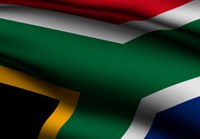
Like a flash of lightning, the virus illuminated the aridity of our public life.
For all their claimed ideological incompatibility, antics in Parliament, and hatred for one another, the one-dimensionality of our political parties is now clear. Ultimately, their responses to COVID-19 are the same: "Our overriding objective is the preservation of life". The words are Ramaphosa's, but they could have come from the DA, who want "a strategy . . . addressing the twin threat to South African lives",or the EFF, who say that "everything must be driven towards human survival".
The greatest amount of life for the greatest number: this is what matters.
Their policies differ, of course, but these differences are instrumental or technical. To keep us safe, to prolong our lives, the ANC directs its attention to the "balance between lives and livelihoods", that is, lives now and lives later. Incensed by this corruption of reason and common sense, the DA advocates, well, much the same, but it places a little more emphasis on longer-term livelihoods relative to more immediate lives. Hearing both, the EFF screams 'CAPITAL' and proceeds to demand, again, much the same, albeit by reversing the DA, preferring the present over the future.
Their disagreement is about means not ends. It is about how to go about realising a shared objective—above all, keep us breathing—not about what these objectives should be in the first place.
This self-stifling of substantive conflict, so universally and naively lauded in the early weeks, is an abandonment of our historical self-understanding of public life.
Rather than a clearing enlivened by a pageantry of diverse citizens, each with their own perspectives on what makes life worth living and therefore conflicting views about what government should do, we find ourselves in a desert-world, haunted by a clergy of experts who through PowerPoint reveal to us the one true, proper, moral way to go about our daily lives.
No longer political, our public realm is now nakedly technocratic: #ListenToTheExperts.
This decline of democratic politics and rise of technocratic rule, this silencing of ordinary citizens and sanctification of celebrity specialists, goes hand in hand. For, the elevation of the norms and ideals of expertise—control, predictability, stability, order—is incompatible with the difference, contingency, conflict and risk that characterise the free, equal and dignified life of pluralist democracy.
We are not led, we are ruled.
To regain freedom and revive politics, it is this shared, desert-ideology of our rulers, their poverty of political imagination, that we must overcome.
Of course, this week we moved to "level 3" of lockdown. We can now do certain things that we were commandednot to do since late March. We should not, however, confuse these bare permissions with freedom, or mistake busier streets for the return of a genuine public life. Not even if the "risk adjusted strategy" that underlies the lockdown succeeds, and not even if this success is followed by the total undoing of the laws decreed during lockdown, will freedom and politics necessarily follow. To regain or recover either, more is needed.
The problem that we face is not the continued operation of this risk adjusted strategy. The failing and illegality of the strategy lies not in its detail, coherence or efficacy. The problem is more fundamental. It is the fact that government's response to the virus, not just in March when single-minded measures may have been justified, but ultimately and for so long as this threat exists, is essentially structured by risk: #StayHomeSA#StaySafe.
Ultimately, government's job is not to keep us safe.
This constitutional truism cannot be said enough. Physical and economic security matter, a great deal, but government's purposeis so much richer, its legal duty extends so much further.
Our laws and policies must be informed not only by the legitimate and proper concern for lives and livelihoods, but by an equivalent concern for all those forms of experience that can give life meaning: love, play, religion, family, friendship, education, spontaneity, difference, competition, community, art, responsibility, criticism, expression, silence, and so on.
It is the subordination of these meaningful goods when determining their programmes or policies that makes our political parties all the same: which is to say, almost nothing at all.
Until the exercise of public power is structured by an equivalent concern for all that matters in life, with experts and expertise reduced to their proper role as the handmaidens of citizens and politics, the desert will endure, with the clearing no more than a fantasy. Like much of the world, we will remain imprisoned by our fear of what we cannot control or predict, ruled by those who 'know best', willingly sacrificing the plurality of life's goodness for the homogeneity of what is merely safe.
Matthew Kruger
Research Fellow
mattkruger1234@gmail.com
The views of the Research Fellows do not necessarily represent those of the HSF, but are published under our auspices in order to enhance and broaden public debate, which is part of the mandate of the HSF.

